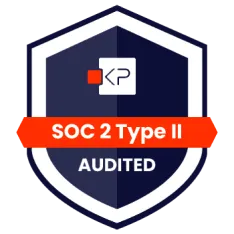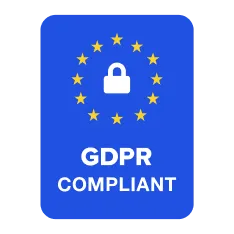Reduce cyber risk, ensure compliance, and lower insurance costs
Reduce cyber risk exposure with comprehensive cybersecurity training
Proactively identify and prioritize vulnerabilities before they become costly breaches. OffSec offers all-encompassing training that covers key cyber threats, allowing your team to actively reduce your cyber risk exposure:
Enhancing compliance through tailored cybersecurity training for global enterprises
OffSec provides a suite of enterprise cybersecurity training solutions that bolster an organization's ability to meet rigorous compliance standards.
By equipping teams with up-to-date knowledge and skills, we ensure that businesses are prepared to defend against threats. This proactive approach to training reduces the risk of penalties associated with non-compliance.
"OffSec training helped me uncover an unencrypted API during a pentest, avoiding HIPAA violations and protecting sensitive patient data."
Key cybersecurity compliance standards
-
The General Data Protection Regulation (GDPR)
is a comprehensive set of rules designed to give European Union citizens more control over their personal data, enhancing privacy and ensuring data protection across all member states. -
The Health Insurance Portability and Accountability Act (HIPAA)
is a U.S. law designed to provide privacy standards to protect patients' medical records and other health information provided to health plans, doctors, hospitals, and other health care providers. -
The Payment Card Industry Data Security Standard (PCI DSS)
is a set of security standards designed to ensure that all companies that accept, process, store, or transmit credit card information maintain a secure environment. -
The National Institute of Standards and Technology (NIST) Framework
is a voluntary cybersecurity framework that provides guidelines, standards, and best practices to manage cybersecurity-related risk for organizations. -
SOC 2 Type II
is an auditing procedure that evaluates an organization's information systems relevant to security, availability, processing integrity, confidentiality, or privacy over a specified period to ensure they meet trust principles. -
The Center for Internet Security (CIS) Controls v8
is a set of best practice guidelines for securing IT systems and data against the most pervasive cyber threats, updated to address modern technologies and risks.
97% of Learners polled agree
that cybersecurity training improves their ability to comply with organizational and regulatory requirements*
*based on OffSec insurance & compliance survey conducted in May 2024
Optimize your cyber insurance strategy
Our comprehensive learning paths, tailored specialized courses, and hands-on Cyber Ranges play a crucial role in helping organizations build robust security capabilities that address current threats and anticipate future vulnerabilities.
Invest in strong security and reap these insurance-related benefits:
- Leverage risk insights to make informed insurance decisions
- Understand your risk profile to ensure adequate protection against cyber threats
- Implement robust security measures and compliance controls to attract favorable insurance terms
Unpacking the "how":
training's effect on insurance decisions
Insurance providers are risk assessors by nature. When they see a company actively reducing its cyber risk profile, it translates to:
Reduced likelihood of claims
Faster incident response
Demonstrated security culture
Studies show a connection between cybersecurity training and reduced insurance costs. Adoption of the NIST Cybersecurity Framework was linked to smaller increases in cyber insurance premiums, with organizations using the framework seeing a 6% increase compared to 18% for those that did not.
By providing training aligned with industry standards like the MITRE ATT&CK and D3FEND frameworks, OffSec helps organizations lower their risk profile and potentially reduce their insurance costs.
Secured and trusted by the best
Our commitment to data privacy and security is embedded in every part of our business. You can use this Trust Center to learn about our security posture and request access to our security documentation.


Start your journey today
Individual
Ideal for
One learner
Team
Ideal for
Fewer than 10 learners
Have questions? Contact sales
Organization
Ideal for
10 or more learners
